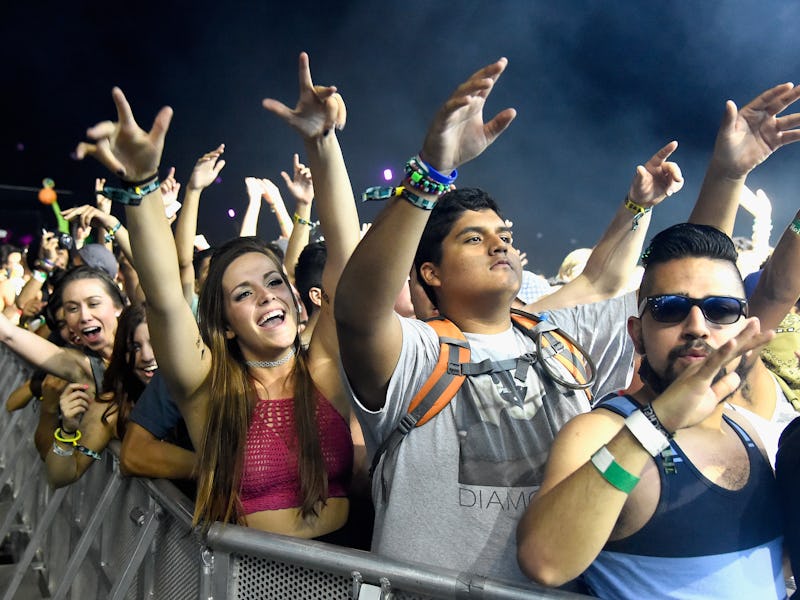Study Says Yes, You Should Be Wearing Earplugs at Concerts
It's too late, we already forwarded this to your mother.

We’ve all felt it before. You leave a loud concert or club and stumble out into the comparatively quiet streets, your ears buzzing and feeling like they’re stuffed with cotton. Sometimes there’s ringing, but it usually goes away after a few days, so it should be no problem, right? Well, it turns out you’re wrong, and your mom was right — prolonged exposure to sounds above 100 decibels can cause hearing loss, either temporary or permanent, and more and more young adults are suffering from hearing loss as they get older. While permanent loss is a bit more difficult to track, a new study shows that there’s a really easy way to prevent hearing loss at concerts, festivals, or wherever else you end up with loud noises: earplugs.
According to the U.S. National Health and Nutrition Examination Survey, the number of adolescents with hearing loss has gone up by 31 percent since 1988. Researchers think this might be due to more and more kids going to loud concerts and clubs as opposed to previous generations. Since telling kids not to go to shows is a losing battle, researchers at University Medical Center Utrecht in the Netherlands decided to test how effective earplugs are in preventing hearing loss.
You can close this article if you only go to Sigur Ros shows or something.
Turns out, they’re really effective. Who knew? Oh yeah, your mom. The researchers gave earplugs to 25 students attending an outdoor music festival for about four and a half hours, and let 26 other students go to the festival with unprotected ears. After the festival, 12 percent of the ‘plugged group had tinnitus or a “temporary threshold shift” for their hearing, as opposed to 40 percent in the unplugged group. It’s pretty conclusive — earplugs aren’t going to make you look cool, and they’ll make it even harder to hear your friends over the noise, but they can save your ears from temporary (and most likely permanent) damage. No more ringing, no more fuzzy, underwater feeling the next day. The researchers figure the sound levels were an average of around 100 decibels consistently, and their participants ages averaged out to 27.
While parents have been encouraging earplugs for years, there hasn’t been a lot of science to back them up.
“The present randomized clinical trial [RCT] adds proof to the scarce evidence and knowledge on this topic, which is a growing global problem,” the authors wrote. “This RCT adds evidence that earplugs are effective in preventing temporary hearing loss during high recreational music levels. Therefore, the use of earplugs should be actively promoted and encouraged to avoid noise-induced hearing loss.”
So look, do yourself a favor, save yourself some parental nagging, and put in earplugs next time you go somewhere loud. Inverse reached out to the study’s authors to ask which music festival they tested this at, and whether the bands were any good, but they didn’t immediately respond. It’s safe to say if you’re going to blow out your eardrums, brain cells, and sense of taste at Electric Daisy Carnival, Coachella, or any of the other tank-top and flower-crown infested summer cesspools in the coming months, you should probably bring along a pair of earplugs even though going deaf might improve the experience of seeing some of the artists live. Better yet, stay home and watch the whole thing in VR, with your headphones at an appropriate volume. Have fun!